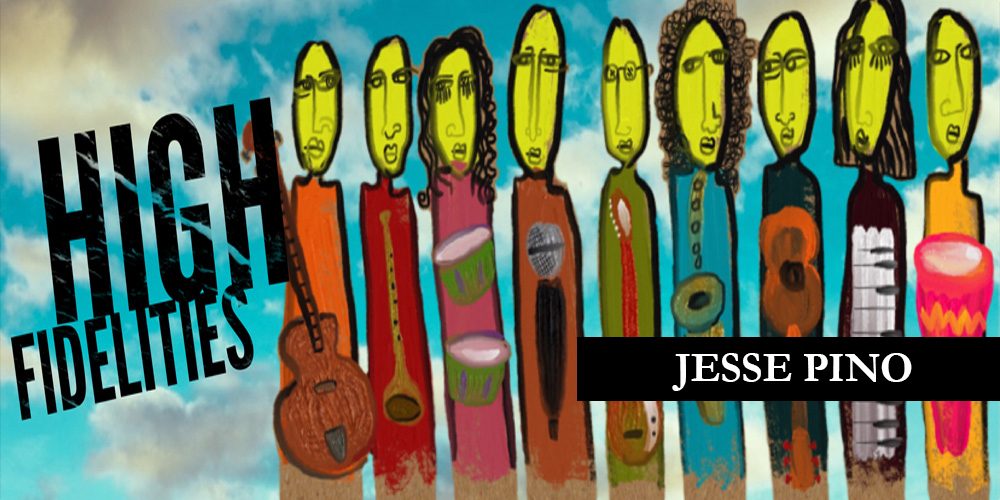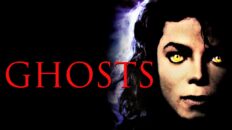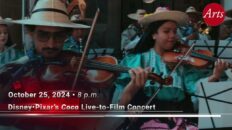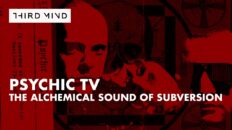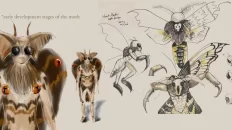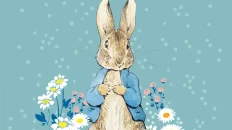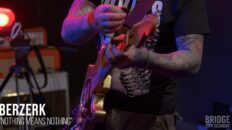Illustration by Chris Taylor
We’re beginning a new interview series here at Rise Up Daily with indie musicians called High Fidelities. Our first interview is with Jesse Pino, who has been making music in Las Vegas for almost two decades. Along with his band, The Vital Signs, he released a new EP earlier this year, Signal Received. We talk to him about that, how he got started, who he’s listening to, and about his involvement in the upcoming short film, My Name is Art.You can find Jesse’s music on iTunes, Spotify, Amazon, and Bandcamp.
We’re also thrilled to have original art for this series by San Antonio based indie musician and artist Chris Taylor, who you can follow at his website christaylorworld.com.
RUD: Thank you for letting us ask you a few questions. You’ve been making music in Las Vegas for a long time. Can you tell us a little bit about your history and how you got started?
Pino: Yeah–I got started–I got serious about making music around 13 years old. My father is a musician–a guitar player and songwriter–so a lot of my musical genes comes from my dad. I also have two older brothers. They’re about seven to ten years older than me and I got into a lot of music through them as well. What they were doing, or playing in, I was just kind of the little brother attached to it. If they liked something, I wanted to like it.
So yeah, I got serious about it around 13. I started playing the guitar when I was about 8–I learned how to make chords–and by like 13 I was like, right, I want to really do this. I have so much fun with it. Make songs and get in a band. So from then to now it’s been almost 19 years I think, making music.
RUD: When you ventured out on your own after being part of a couple bands, Nadaclue and Left Standing, what was the biggest challenge?
Pino: I think my biggest challenge was just being on my own, just not having anybody to compliment the songs with. And if anything became negative or anything went wrong it was kind of all on my shoulders. The last band I was in was Left Standing. My two older brothers were in that band and it was like a 5-piece band. So that was easy to lean on someone there to your left or to your right. I think the biggest challenge was just being on my own, with all the weight at first. And I was really just scared about that because you’re curious if anyone’s going to dig it or not.
With Left Standing we played a lot of acoustic shows, so I think playing my own songs, more broke down, that really wasn’t an issue. It was just being there by myself and it’s all on me that was kind of a little scary at first.
RUD: How did that progress? Did you become more confident? Did people respond?
Pino: Yeah, I think at the very beginning there was always a little doubt. Or more than a little doubt at the beginning. But it was never not believing in what I was able to do. But it felt way better when I got feedback from people–they were enjoying it and liking it. And that boosted my self-confidence a little bit. So just leaning into that and moving forward and staying true to what I can do and being positive about it. It became a lot easier as time went by.
I think I always get a little nervous, but I think that I get nervous because I care about doing a good job. Once I get going then it’s just–Go! Go! But I don’t like waiting sometimes. Waiting gets me a little more jittery. But once it’s time to go, I’m just like, Let’s do it!
RUD: Earlier this year you released an EP, Signal Received, can you talk a little about that? What was the process like bringing that to life?
Pino: I had that batch of songs I started making after I released my first EP back in 2011. I was writing these songs and it was this process and I was in this place of missing playing with other people. I liked making songs and doing it solo, but I also missed playing with a band. As I was writing these songs, I could hear them with a more full spectrum musical landscape. I started demoing the songs and I started getting a band together. I brought in a lot of good friends. Some old friends who hadn’t been in music for awhile, but were old buddies who liked the songs that I was writing. They wanted to be a part of that and I was really stoked.
I started recording the record in 2014, I want to say, 2015 maybe. And then toward the tail end of finishing it the bass player at the time and then the guitar player stepped out of the band. They stopped for personal reasons, there’s no bad blood. There were just other things going on and life took them in different directions and we’re totally OK. But that was kind of tough. I was like, Oh my gosh, I have these songs, I have the EP, but I have no band. So I released the EP and I only had me and my buddy, the drummer, Jamison, as the band members.
So I looked around the scene and I saw Louise–who plays bass with me now–and I asked her if she wanted to jam with me and be a part of what I’m doing. She was super pumped about it and jumped in right away. And I couldn’t be more happy about it. And Greg who plays guitar with me, he kind of fell out of the sky. He reached out to me when he was moving to Vegas and was looking for somebody to play guitar with. He was looking for a singer songwriter who wanted to have a backup band and it was exactly what I needed. I’m not sure, I think when he reached out I had most of my old band playing with me. But I think I responded to him. Then we finally met up at the Bunkhouse and we hit it off right away. We have very good, similar taste in music and ideas about songwriting. He’s just a good hang. So everybody in the band–we’re not just band members–we’re friends too.
It was that line up for a little while leading up to the EP release. And then the EP release party–my drummer at the time, Jamison–it was going to be his last show because life was changing for him as well and priorities were shifting. So that was a tough blow. Jamison had probably been in this band with me the longest, since 2011. So six or seven years. And then I got Anthony. Anthony is the newest member of the band and he’s an excellent drummer and super cool.
So in a nutshell, I made this EP with one band and I’m playing it with a different band. That was a crazy process, but luckily everything worked out and the EP came out and I’m very proud of it. And the crowd and fans seem to enjoy it, so that’s a good thing.
RUD: Your music has been called a mix between folk and punk. How would you describe it?
Pino: Gosh–it’s totally weird–I think it’s weird when an artist tries to describe their music. When I first started in 2011 with my first EP, which was called The Burn, that one had more of a rockabilly-esque feel to it. But in my head, I’m always just trying to write a good song. I think those first batch of songs were like my training wheels. I knew I could write a song, but I didn’t know where I wanted to sit yet.
The new EP is definitely different from the old EP. It’s more like alternative rock. There’s a lot of loud guitars. But not too loud, where you can’t enjoy the melody of the song or something. If I had to describe it, I’d say alternative rock or just rock. I have influences inside that little rock bubble, but something like that. I really, I just try to write a good song. I try to ask if anyone can sing this song with me. Because if they can sing along, that’s where I try to put my headspace and I know I’m on the right track.
RUD: That leads into my next question. I wanted to talk a little bit about your songwriting process. When you write a song, how do you approach it? Do you start with a lyric, a bit of music? How do songs come about for you?
Pino: For the longest time–and even up until now–it’s usually the music that comes first. I’ll have an idea like a riff or something and that’s the canvas and then I’ll start playing around with melodies and phrasing. I’ll put in some solo chords and it builds out. So it starts with the music first. But not all the time. Sometimes I might have lyrics. I always have something in my head where I’m like, I need to write. I can probably write a song about this. This could be a song. But it’s hard for me to–in the past it’s been hard to start with lyrics first.
It’s a little easier for me to start with some bit of music or a riff and then build on that. But this year I’ve been trying to challenge myself a little bit and write down lyrics first, like a journal–write down phrasing and see what’s sticking out and ask myself how could I sing that? Or what could it sound like? It’s new for me and it’s a little bit longer process. It’s longer just because I usually don’t write like that, but I’m trying to change things up and see if I can widen my spectrum a little bit.
RUD: What have you learned as a person through your years making music?
Pino: That’s a good question. I guess my life comes through the songs. My strongest songs come from real life experiences. I’m not super transparent with the songs, but they come from something in me. It’s hard for me to make up things that are not real for me. Once in a blue moon I write songs that are just made up, and they come out pretty cool for the most part. But most of the time when I’m writing songs it has to be linked to what I’m going through or what I’m feeling. I guess in a sense that’s the best. I’ve learned a lot how to try and be myself as often as I can. Sometimes I see other bands and how the audience reacts when it’s not sincere. I just try–I think one of the things I’ve learned is just to try to be sincere and real and have fun with it.
RUD: You were recently part of filming a short film, My Name is Art. Can you tell us a little about that? What was that like?
Pino: Oh man, that was super fun. I got be in a supporting role in this film. I’m the evil twin of the main character. I’ve had the privilege to work on a few short films and getting to see filmmaking in action. And doing that is so cool. And it’s fun to step away from the music side of things sometimes to participate in filmmaking.
I got to help build some of the fight choreography. Or, I guess I got to help build all the fight choreography with Kevin, who is the actor playing the main character. It was fun to do things over and over and capture it from different angles and cameras. Nobody really got hurt in the film. I don’t know if I should say this, but in the film we get to break something–oh no, I guess I can say this because it’s in the preview–Kevin and I break some stuff on each other’s heads and I accidently cut him a little bit and we got that in one shot because we couldn’t put what we broke together again once we broke it. So I was like, Oh my God, I’m so sorry! But everyone was totally fine.
It’s really cool to see how films are made–whether it’s a feature film or a short film. Sometimes people don’t know all the hard work that goes into creating a film. It’s a lot of work even for short films. It’s really a lot of work. But everyone on set was super passionate about the project and wanted to do a good job. It was a good time and hopefully we made a good film.
RUD: How would you compare the experience of making a short film to recording an album?
Pino: I see a lot of similarities in some ways. Sometimes writing a song, there’s so much I want to say or talk about or convey in like two minutes or two and a half minutes. And that’s challenging. And when someone’s making a short film, it’s almost the same thing. They have this story they want to tell, and they can only tell it in so much time. How do they condense this idea down to this box? Will it come out–will it be executed well? Will it get the feeling across to the audience who is watching it?
And then there are similarities in the labor that goes into creating it. Sometimes when you have to write a song it’s just an idea and it’s just in your head–or it’s floating around you in the air and you have to take it out of the air–you take nothing and create something and that takes energy. And with film, it’s kind of the same thing. I see how there’s an idea and you say, Now I need to like make this come alive and I need to write the script, and then get the actors, get the camera people, lighting, book days and call times. Like all this work. It’s very similar worlds to me.
RUD: What’s next for you? Do you have anything you’re working on now?
Pino: Right now I’m working on writing new songs. It’s been a slow process, but not too crazy. My goal is to try and make a full-length record, ten to twelve songs. I think it’s time to do that. I’ve never released a whole record on my own. I released–I helped release full-length records when I was in the band Left Standing back in the day.
I’m trying to hash out some new ideas and hopefully by the end of the year I will have the demos of all the new songs laid out. And then start recording the songs next year. That’s the objective I have to give me something to focus on.
RUD: What music are you listening to right now?
Pino: That’s another good question. Currently I’ve been listening to a lot of different stuff. I really like this band called Pale Houses. I think they’re out of Nashville–a local band out of Nashville. They’re just super cool. I love the vibe of their songs, with a great singer, and they have great arrangements. I’ve been getting into Tom Keene, he’s like this–I don’t know how I didn’t know about this guy before–he’s from the 80s and 90s and he’s pretty much like the father of power pop. Or, how do I say?–like the Gin Blossoms type of music but, 90s power rock, pop rock. It’s really cool stuff.
Locally, the band Mercy Music have released their new record and I’ve been starting to jam to that and I love it. They’re loud and in your face but they write great songs and they’re so tight. Another local band I’ve been listening to is The Dirty Hooks.
I’m always listening to Ryan Adams and whatever he does because he’s just the man. Dawes, I’m a big fan of Dawes. I’m always listening to Jimmy Eat Word. And this band called Caveman, they’re really awesome too.


